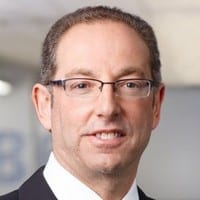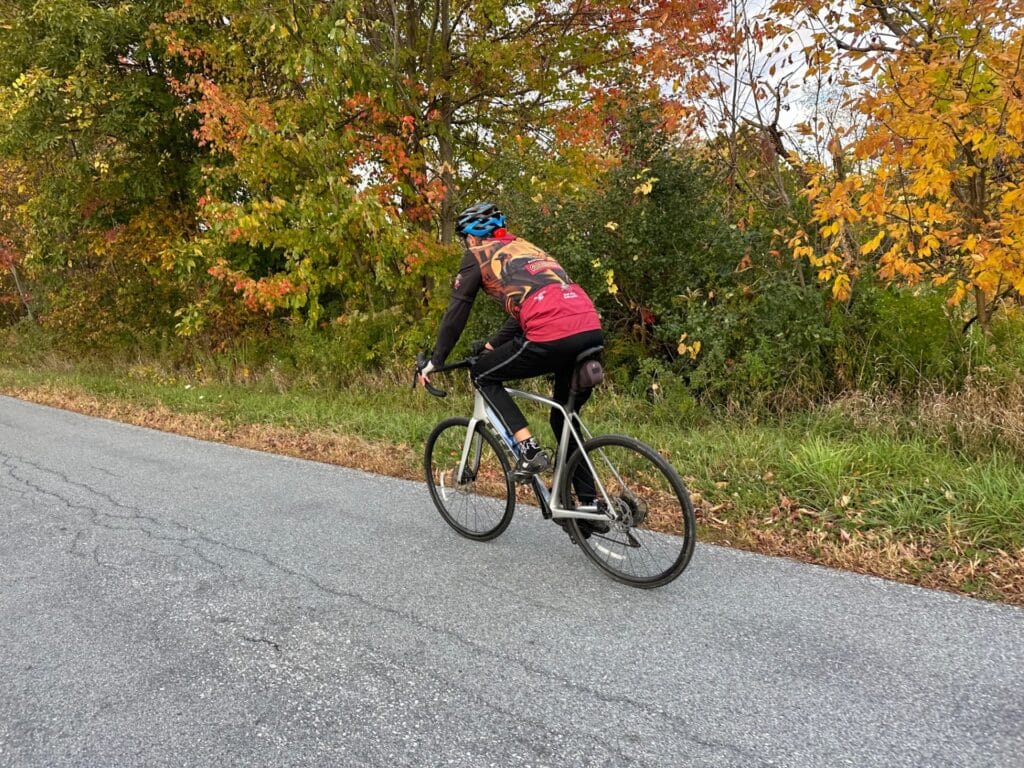FLASH FRIDAY is a weekly content series looking at the past, present and future of capital markets trading and technology. FLASH FRIDAY is sponsored by Instinet, a Nomura company.
Andy Lowenthal’s corporate career was a bit of a throwback, in that he spent 40 years with one employer.

His retirement, however, is a far cry from the old archetype of playing shuffleboard in Florida.
Since calling it quits from Cboe Global Markets at the end of 2023, Lowenthal has kept busy with travel, nonprofit work, and dabbling in business advisory. And, never say never — he doesn’t rule out a return to the corporate world.
Traders Magazine chewed the fat with Lowenthal, 63, earlier this month.
How did you first get into the business?
I was interested in trading a little bit when I first came out of school. I had a buddy working at Cboe so I went in to take the fractions test, which was about adding and subtracting fractions. In those days, trading was in sixteenths, and you needed to pass the fractions test to be able to start as an entry-level price reporter on the trading floor.
What was your career path at Cboe?
I started on the trading floor, entry level. I completed my degree while I was working at Cboe, as I took night classes at DePaul University. The degree allowed me to move up in the organization. I had a short stint in regulation, and then, pretty much the first half of my career was in trading operations, which I would describe as being the liaison between the trading community and the technology staff. I was very involved in the transition of trading away from paper. It didn’t transition to fully electronic, because we still had the trading floor, but we electronified many processes that had been paper.
The second half of my career was in business development. I remember telling Phil Slocum, who was head of trading operations, that I was leaving operations to go to biz dev. He said “Oh, that makes sense. You’re going from making to selling.” I always liked that line. Phil was a great man, who unfortunately is no longer with us.
I worked for Ed Provost who was then head of biz dev. Ed mentored me and increased my role over time, and when he became the president of the exchange, I moved to head of biz dev, which is where I was when Cboe acquired BATS in 2017. That acquisition expanded Cboe’s offering significantly, as we went from an options and a small futures exchange to a global exchange operator across multiple asset classes. I became executive vice president, head of options and futures. Then Bryan Harkins and I created the Markets Division that took all the US based transaction-based business lines, plus the listings business, under one umbrella first reporting to Chris Concannon and then Ed Tilly.
One reason we made this change was that customers were being negatively impacted by having a division of trading products. As an extreme example, my options team and Bryan’s equity team might have seen a client the same day without communicating with each other. So Bryan and I made a plan to address this.
I was in this role until 2019 when I moved into a late-career type role, which was a combination of strategy and business development. My main goal was to help plot a path for Cboe to move into new geographical markets. With COVID that plan got waylaid a little bit. That’s the role where I ended up and had some nice successes. I also able to mentor many associates which I found quite rewarding.
What might you point to as a best accomplishment in your career? What was the biggest challenge?
My answers to both are related to the VIX futures. I’ve had a lot of successes, but one in particular was when I was named the head of the Cboe Futures Exchange (‘CFE”). Prior to 2008 there had been a lot of consternation, both across Cboe and on the street, whether this product made sense at all. But we kept at it. And then with the 2008 market correction and the small number of people that had made VIX allocations well-outperforming the rest of the market, that really helped us, and from there it catapulted to became a big part of the exchange.
We only listed VIX futures because we were only an options exchange and we wanted a viable VIX options product. But the market making community told us that without a futures contract, there was nothing for them to hedge with. So that was the initial driver for creating the CFE.
Now, of course, the CFE and VIX futures are an integral part of Cboe Global Markets Us turning that into a successful product line from being on a respirator and almost dead, was definitely a challenge that turned into one of the crowning moments in my career.
The biggest challenge was “Volmaggedon” (in February 2018), when two VIX ETPs blew up. These were inverse levered ETPs tied to VIX futures meaning their daily return equaled -1X the daily move in a VIX futures index. So, on a day when the VIX futures index doubled, the ETPs were forced to liquidate or de-lever to survive. Unfortunately, many people lost significant amounts of money. And while these products were not issued by Cboe, the episode caused a significant hit to the reputation of the exchange and the VIX complex. We spent a lot of time from a Legal and crisis management perspective addressing the issue with customers and rebuilding confidence in the exchange. It was a really challenging time for both Cboe and me personally.
What have you been up to since you left Cboe at the end of 2023?
I created ABLL Markets Advisory LLC – it’s not full-time, but it has kept me engaged in the industry. Beyond that I have a combination of advisory roles: one is with Oliver Wyman, where I’m a senior advisor to their investment banking team; another is with a firm called Ironbound Group, which is a boutique investment banking group; and a third is with a startup firm called Adaptive Investment Solutions LLC. That one is right in my wheelhouse because they’ve developed software where you upload your equity portfolio and it will give index option suggestions to either hedge or enhance income using cash settled indices, S&P, Russell, and or Nasdaq. I’m also doing a great bit of non-profit work .
How about personally?
My wife and I travel a lot – we did 24 trips last year. We did seven weeks in Europe, covering Istanbul, Greece, and London. That trip was a real highlight.


Stateside we split our time between Chicago and New Buffalo, Michigan, which is a beautiful little vacation community on Lake Michigan.
Beyond that, my son got married last year, which was a big event, and my daughter got engaged.
On a typical day I might spend the morning talking to people in the industry or doing some non-profit work. I try to keep my afternoons free to do things I like to do – taking a woodworking class, exercising, bike riding, whatever.

What does the future hold for you?
Probably not as much travel in 2025, but we’re still exploring new things. I’m still open to advisory work, although right now my plate is about as full as I want it to be.
I work with the Illinois Holocaust Museum and Education Center – I’m on the board and I serve on several committees, which I love. My father was a Holocaust survivor, so it’s something that I’m very passionate about. I also do some work with the United States Holocaust Memorial Museum. The other nonprofit I work with is Renaissance Social Services, which provides social services to people transitioning off the streets and into housing. We provide them with the support they need to succeed. These nonprofits are great causes.
I don’t have the desire to jump back into full-time work. Look, my phone is on, so if someone made me an offer I couldn’t refuse, I would have to give it serious thought. But it’s not something I’m looking for right now.







